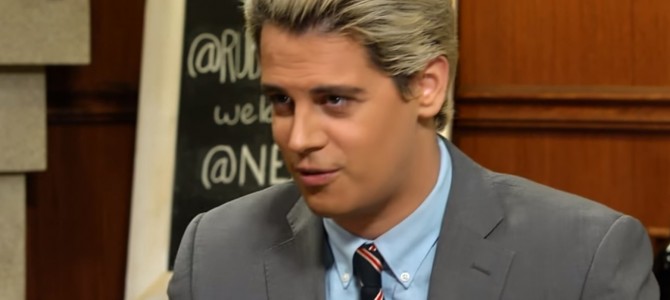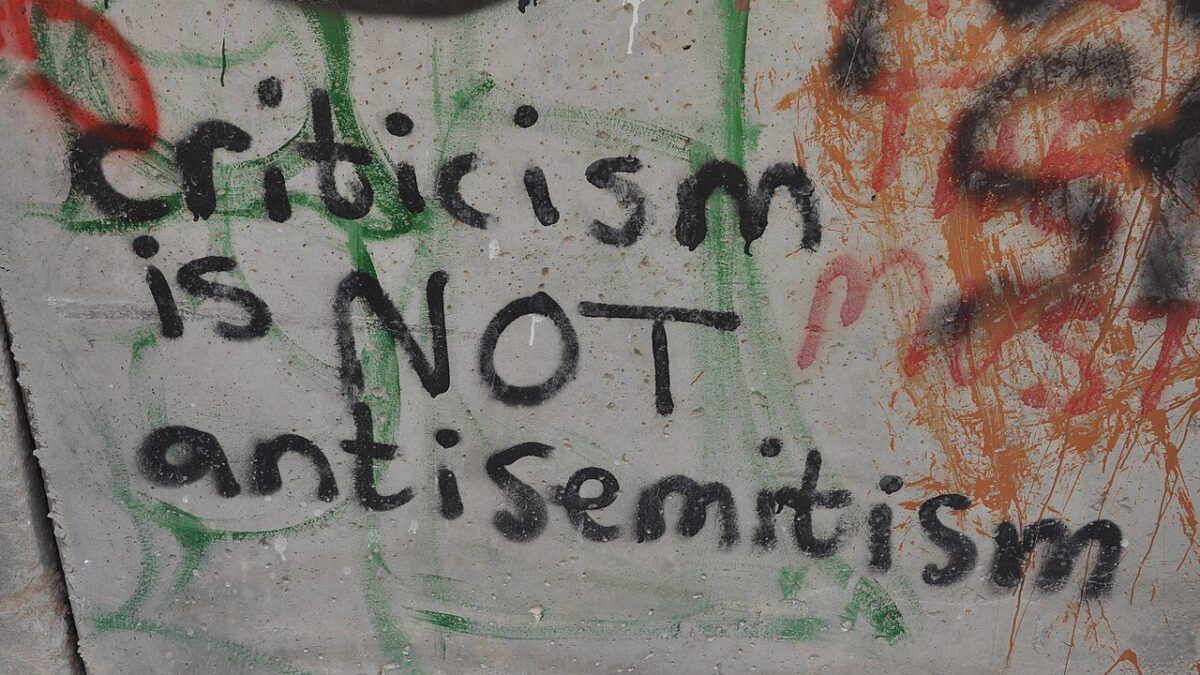
If you have come to this thirsty for a good opinion about Milo Yiannopoulos, the second most handsome personality of Greek blood on the Internet, I have good news and bad news. The bad news: by the prevailing standards of online political opinion, I have nothing to “say” about his bizarre and incredible quasi-martyrdom at the hands of Twitter’s panicked and reactionary hall monitors of the soul, nor about his fruitful, profligate resurrection and revenge — reminiscent of nothing so much as Colonel Cathcart’s sublime horror in “Catch-22.”
A moment ago there had been no Yossarians in his life; now they were multiplying like hobgoblins. He tried to make himself grow calm. Yossarian was not a common name; perhaps there were not really three Yossarians but only two Yossarians, or maybe even only one Yossarian — but that really made no difference! The colonel was still in grave peril. Intuition warned him that he was drawing close to some immense and inscrutable cosmic climax, and his broad, meaty, towering frame tingled from head to toe at the thought that Yossarian, whoever he would turn out to be, was destined to serve as his nemesis.
Colonel Cathcart was not superstitious, but he did believe in omens, and he sat right back down behind his desk and made a cryptic notation on his memorandum pad to look into the whole suspicious business of the Yossarians right away. He wrote his reminder to himself in a heavy and decisive hand, amplifying it sharply with a series of coded punctuation marks and underlining the whole message twice, so that it read:
Yossarian! ! ! (?) !
I don’t know about you, but I never really liked Yossarian, only related to him. In a climate of all-consuming paranoia there’s hardly a choice but to feel outright comradeship with someone whose plucky charisma is untouched by needling persecution present everywhere, putting the same face and same voice into everyone.
There is plenty of reason Milo has taken on an Anomalisa-like character for so many consumers and producers of social media, but the uncanny spectacle of an Anomalisa multiplying with such tremendous red-cheeked virality caused something within me to crumble or recoil: an instinct given much greater sting by the immensely private and silent death of David Bowie, a hero I feel more kinship with than any writer, whatever the sexual or political identity.
Now for the Good News
But I told you there was good news. This parodic mortification of meatspace carried out by the cast of thousands supporting Milo’s Broadway debut in the great Internet passion play invites a new and crepuscular gospel, one fit for the catacombs. Illiteral, resistant to explanation, willfully perverse by the perverted measure of the times… I’m looking for argument repellant — yet of a kind that pulls me and you closer, into a conversational conspiracy. Yes: some secondary instinct tells me I’m not alone.
Or is it the voice of God, and not some carnal reflex? That’s what Michael Dougherty, another freshly martyred media friend, dared to suggest this week. “Promoting suicide is wicked,” he tweeted, in reaction to a new and poignant paean to preemptive death. “And trying to elicit my sympathy for a plan of suicide is also wicked.”
For this he was told (in so many words) he ought to go kill himself. In a damning reminder of just how viciously TV civilization has infected what seemed to have been the Internet’s Edenic new culture, we have slid by amoral analogy from the old adage that you should change the channel if you don’t like what’s on to the inexorable judgment that if you don’t like who you are you should switch yourself off. Delete your account, delete your life.
The logic extends in its dark majesty well beyond the annoying heralds of non-negotiable moral principle. Just as, at long last, it is officialdom that is paranoid and micromaniac in its paranoia, scrambling down from the great nowhere of Twitter HQ to beset this pert Yossarianopoulos or that, a crowdswarm of contempt awaits those who would dare to offend reality by saying, in public, that they’d just as soon conscientiously object to the febrile extravaganza of performative outrage, inrage, counter-rage, and, most remonstratively of all, courage.
If you don’t like the rules of the game, leave the field. Opt out—here’s a nudge. Lead, follow, or DIAF, with neither a bang nor a whimper tbqh.
Hatred Is a Sign of Life
In fact, this hatred strikes me as one of the few signs of life remaining in the world. This is another thing about the world which is upside down: all the friendly and likable people seem dead to me; only the haters seem alive.
Down I plunk myself with a liberal weekly at one of the massive tables, read it from cover to cover, nodding to myself whenever the writer scores a point. Damn right, old son, I say, jerking my chair in approval. Pour it on them. Then up and over to the rack for a conservative monthly and down in a fresh cool chair to join the counterattack. Oh ho, say I, and hold fast to the chair arm: that one did it: eviscerated! Then out and away into the sunlight, my neck prickling with satisfaction.
That was published two years before a 15-year-old David Jones began his first band. (Go Google the author.) Between now and then, repeating the pattern played out everywhere — the evisceration of the middle rank, not just the pale monolith of our suburban midcentury nightmares but the rich and filthy fecund miasma of the high fraternizing with the low — officialdom has colluded with public opinion to stamp out those who’d presume to commingle the covert and the overt, the said and the unsaid, the text and the subtext, the rule and the exception. Now it happens in an orgy of presentationalism or doesn’t happen at all. Such is the message, such is the medium.
From time to time, people who visit from New York or DC look across at me over coffee and brunch and ask, unsure of themselves, what exactly it is that I’m doing out here — this being who seems to have grown as oblique and veiled and inaccessible and decentered as Los Angeles itself (the real L.A., not the face it puts on, as cool and calculated as a CIA front).
This and that, they’re told, in so many words. By which is meant: peruse what I’m not doing, what one could have been, who was available to be but wasn’t. Here is an invitation to explore a quiet forest of clues. But a silent spring sets in.
Edmund Burke supposed the first and simplest emotion we discover is curiosity. The more I follow life’s trails of breadcrumbs, the more the heavy branches close in. The light beyond is waning — but within, the grove blooms.









